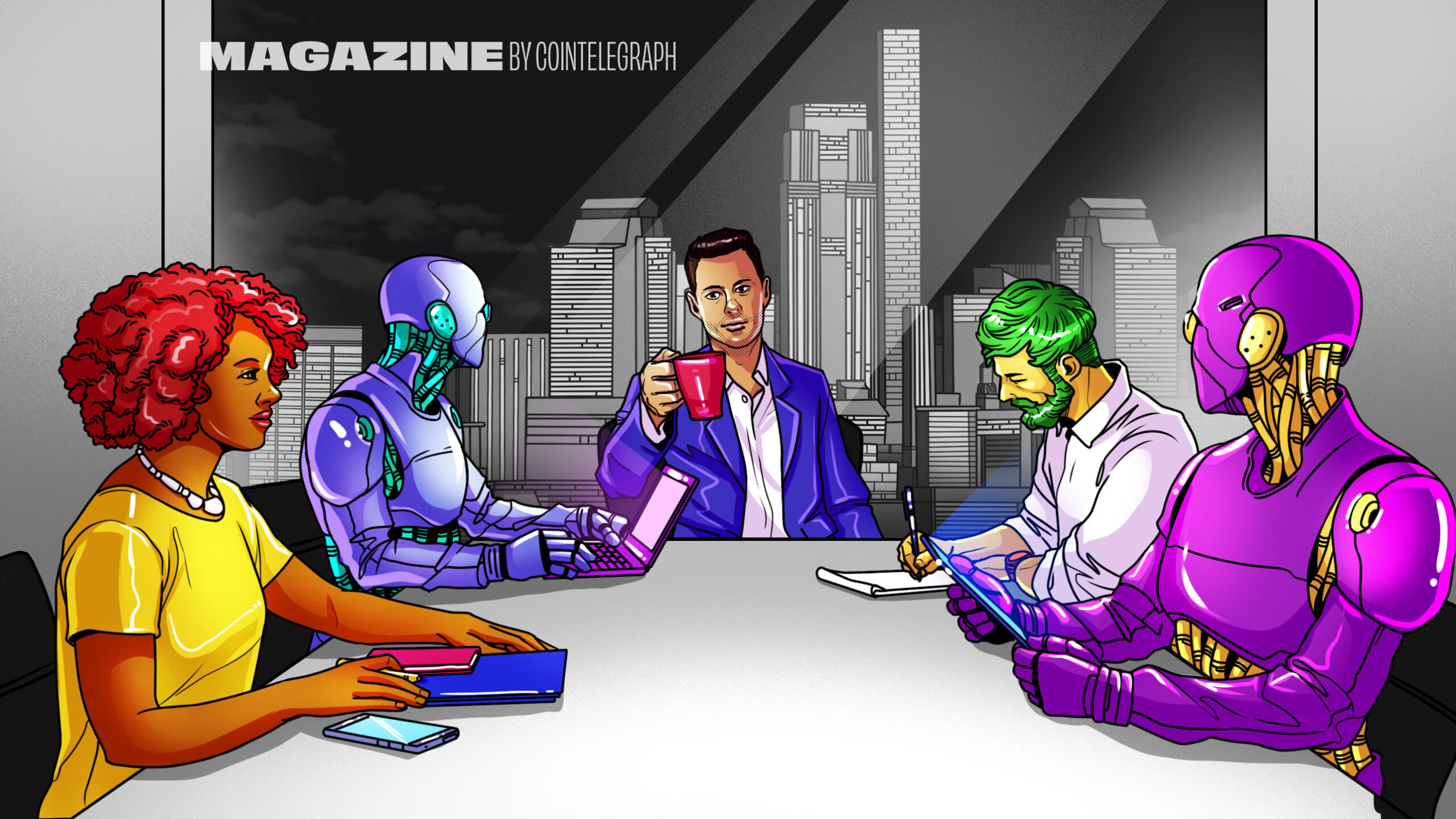
‘AI has killed the industry’: EasyTranslate boss on adapting to change

If you’re not transforming your business to take advantage of AI now, you’ll be left behind, says Easy Translate boss Frederik Pedersen.
The launch of generative AI products over the past nine months has the world talking about how it will change the future. Many are frightened. Others are excited about the opportunity.
A report last month from Next Move Strategy Consulting
Early access to OpenAIs ChatGPT
The AI light started to dawn on him back in 2020.
That year, Pedersen applied to the Danish Innovation Fund for a 65,000 euro grant to create a content generator engine that would enable him to create a new form of translation:
I realized that the biggest issue in e-commerce when it came to languages was not translation in itself, but creating localized content for retailers different products that customers could relate to, he explains, adding the company spent the money to train neural networks to create these product descriptions.
Also read: AI Eye Real uses for AI in crypto, Googles GPT-4 rival, AI edge for bad employees
A neural network is a type of machine learning process called deep learning that uses interconnected nodes or neurons in a layered structure that resembles the human brain.
We branded it content-as-a-service and couldnt believe we were one of the first companies to do it, he says, though it ended up proving the old adage that being early is the same as being wrong.
Ultimately we were ahead of the technology and while our technology could build sentences, it just wasnt good enough for our customers.
This first effort was not wasted time and money, however, as it meant the company was able to hit the ground running when large language models were released publicly. EasyTranslate obtained early access to ChatGPT because it already had an account with OpenAI and was able to adopt and execute the technology instantly.
From that point, EasyTranslate pivoted to a generative AI content future based on Pedersens thesis that traditional translation was indeed dead.
Translation meets technology
It was not the first change in direction for Pedersens company. Formed in 2010 without venture capital, the translation service grew quickly.
In 2016, it went after bigger fish and started offering interpretation services to the Danish government after realizing there was an opportunity with the launch of Apples FaceTime. According to Pedersen, interpreters were super-expensive, inefficient and slow, and travel for in-person events wasnt exactly climate change-friendly.
Pedersen created a video interpretation app that streamlined costs and increased efficiency by offering a marketplace and matching service for interpreters as well as remote interpreter services.
Danish municipalities signed up for the service, including the Danish Ministry of Justice, recognizing that bringing an interpreter to a court was a very expensive business, especially due to the often last-minute nature of such needs.
Danish operation a success, but the patient died
At its height, the company was running 1,000 interpretation meetings a day, and between 2017 and 2019, it was responsible for more than 70% of the Danish governments interpretation business.
However, Pedersen says the Danish government had never outsourced such business, and the relationship turned sour.

It was a very mutual and fruitful relationship for a long time, but we realized that working with governments was more difficult than we imagined. It was like the cliche of a heavy tanker not being able to turn around.
Again, it was the first learning curve for me. Yes, our data processing wasnt as good as it could have been and working with antiquated systems and reasoning was very difficult.
Eventually, the Danish government decided they didnt want to carry on with our relationship. It was hard at the time, but I still believe we succeeded, and we learned a lot, he says.
Lets just say, the operation was a success, but the patient died. There was also a lot of opposition from the strong Danish trade unions who thought we were putting people out of jobs.
But it was not about putting people out of jobs, it was working with technology in the same way we work with AI now. Our interpreters who decided to join our community were extremely happy with our software. They said it was like having a PA that coordinated their calendar and ensured them productive days with the highest possible earnings they managed to increase those earnings.
Impact of AI on jobs
The impact of AI technology on employment is a source of great anxiety for many, with some predicting entire industries will be wiped out, while others suggest jobs will change and evolve rather than disappear.
A recent study by the International Labour Organization found that women will be disproportionately affected by automation, with around 7.8% of jobs held by women in high-income countries (or 21 million) likely to be automated, but only 2.9% of jobs held by men (9 million).
Translation is a highly gendered industry too, with women accounting for around 67% of translators.
Pedersens thinking about the essential human element in technology be that content generation or generative AI is now central to EasyTranslates business.
Also read: AI Eye Get better results being nice to ChatGPT, AI fake child porn debate, Amazons AI reviews
He believes that the combination of humans and AI is more powerful than just letting the AI do everything, using the example of a hard-working high school student who was angry at classmates for using AI to cheat.
Instead of cheating herself, she asked ChapGPT to mark her already-written essay. It sorted out the grammar and typos, and it gave her extra resources and links to improve her work beyond that of the cheater.
In business, everybody is looking for the magic of balance in the marketplace, that sweet spot where pricing, innovation and technology are aligned. We are also doing that when it comes to AI and humans; we want that magic balance there as well, he says.
Humans still required in the loop
He cites humans in the loop as the way forward for humans and machines. Generative AI can do the heavy lifting, and humans can finish and finesse the job. It creates content in any language generated by AI but enhanced by humans.
There are others in business, such as Reuters, who also profess the humans in the loop phrase. Again, Ive been saying for a long time that this is the way forward to make both technology and humans better.
By harnessing the power of both and increasing machine learning in the process, I believe that the current dominance of LLMs will be replaced by small language models that can be tailored exactly for the customer open source generative AI that will be the future.
Thats what were planning for and how the whole AI sector will play out. Those companies that are prepared for that will prosper; those who arent will fail, he says.
Since Pedersens pivot to AI at the end of 2022, there has been increased investor interest in EasyTranslate, and the company raised 2.75 million euros earlier this year
We think that weve been ahead of our time, and that thinking has led us to embrace AI and take us to the next level. AI itself is just the mirror of what humanity has already created; AI is really the technological history of human knowledge.
I think its obvious that the two are perfectly compatible, that magic balance, so as generative AI evolves, so will those humans in the loop. Nobody with a good and adaptive brain will lose their job; their jobs and roles will be better and more creative, he concludes.
His father should be proud.

Go to Source
Author: Monty Munford









